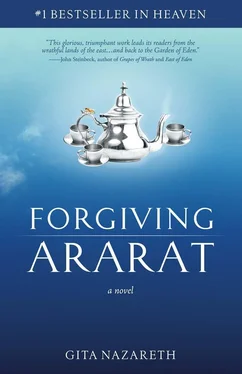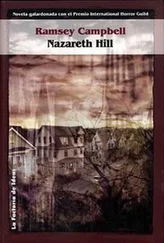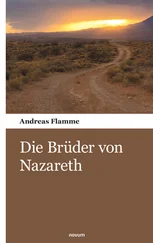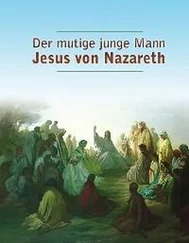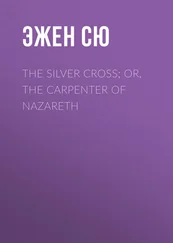Elymas found me walking through the woods on my way to the Urartu Chamber to present the soul of Otto Rabun Bowles. “We have one more visit to make, Brek Abigail Cuttler,” he said, “to meet others with an interest in the outcome of the case. Come with me, you will not be delayed long.”
I assumed he would take me to see Bo and maybe my father and mother, but instead he opened the portal of his unseeing eyes upon the terrible flood of Cudi Dagh.
Lightning flashes and thunder cracks across the sky. Elymas is above me on the cliff. The water rises in feet, not inches, the waves below consuming the foothills and everything in their path.
“We’re going to drown!” I call up to him on the cliff, rain streaming down my face.
“Do not worry, Brek Cuttler!” Elymas yells back down to me. “Cudi Dagh stands seven thousand feet. Noah found refuge here. Come along quickly.”
Less than one-third of that altitude remains as we press our cheeks against the face of the mountain for the final assent. Elymas uses his gnarled fingers like a mattock, thrusting them into the crevices; he loses his grip only once, but it costs him his four-legged cane, which clicks against the boulders on the way back down to the roiling seas below. I keep my distance, afraid he will take me with him if he falls. I am as old and worn now as Elymas, moving slowly and cautiously, gasping for air and stopping often; I climb the mountain like a crippled goat, using the stump of my right arm for balance, barely able to see my next steps through the cataracts clouding my eyes. My clothes dissolve in the downpour into a paste of thread and dye that curdle into the wrinkles of my skin.
At the summit, we find a monastery constructed of mud thatch and thickset timbers; an annular rock garden sprinkled with chunks of sandstone, quartz, and veined blocks of marble rings the small building. Behind it, a narrow escarpment offers what in better weather would have been magnificent views of the lesser mountains and plains of Ararat. At the far end, a monument is chiseled into the gray basalt ridge; it is a carving of an immense wooden barge run aground in rough seas, waiting for salvage beneath the pensive wings of a raven and a dove. On the deck of the barge gathers a herd of animals fortunate enough to have escaped the floodwaters-pairs of lesser mammals and reptiles of every species-and at the bow stand the humble figures of a man and a woman.
Elymas nudges me inside the monastery, where we find a small chapel kept warm by a fire that burns without fuel inside a stone fireplace. A semicircle of crude wooden stools encloses the raised hearth, and between these and the flames stands a small rectangular table that serves the monks as both dining place and altar. At the center of this table sits an unusual bronze menorah, tarnished waxy black; a one-armed crucifix, like the one that hung from my Uncle Anthony’s neck, is attached to the trunk and lowest branches of the menorah. The King of the Jews bends his left arm upward along the broad curve of the branch in a gesture of sublime exaltation.
Elymas ushers me through an alcove past one of the monks’ cells, furnished with a bed of wooden slats suspended by iron straps above the floor. We enter the kitchen, which contains a small preparation table, a cistern overflowing with rainwater, and three wooden bins filled with dried fruit and nuts, as if the monastery has been recently inhabited. When we return from the kitchen into the chapel, we find that all but one of the stools in the semicircle around the hearth are occupied by monks wearing brown hooded robes. They face away from us toward the altar with its strange menorah, and on their laps they cradle laptop computers into which they stare reverently with their backs bent as if in prayer. Halos of fluorescent light from the computer screens give them the appearance of saints posed in a medieval painting.
We walk around them to see their faces, and I am stunned to discover that the first monk is Karen Busfield, wearing her blue Air Force uniform beneath her brown robe. Around her neck hangs the white linen stole I had embroidered for her by hand with a gold alpha and omega and presented to her at her ordination; it is a simple, conservative vestment, lacking the colorful ecclesiastical designs she preferred, but it was the best I could do with one hand. She wore it the day she married Bo and me and again the day she baptized Sarah; but she almost gave it back to me the day Bill Gwynne and I recommended that she accept the government’s offer to drop all charges against her if she agreed to resign her commission and end her crusade against nuclear weapons. With tears in her eyes, she slid the stole across my desk but, suddenly, pulled it back.
“No,” she said. “I withdraw my appeal to Caesar.”
She fired Bill and me from her case, and she was right: the government dropped the charges anyway and gave her an honorable discharge, realizing that prosecuting a priest for trying to save the world from nuclear destruction would be a greater threat to the nuclear arsenal than freeing her and denying that any of it had even happened.
Now, sitting in the monastery on Cudi Dagh, the Reverend Karen Busfield’s face, which was always loving and serene, gazes into the computer screen on her lap with an anguish even greater than the day when she came so close to giving up the priesthood. I approach her and touch her shoulder:
“Karen, it’s me, Brek. What are you doing here?”
She looks up from her computer screen but doesn’t recognize me in my old age; her cheeks are powdered with the brine of dried tears. Outside the storm rages on; the timbers of the monastery stiffen like the scourged back of a flagellant paying his penance. Karen closes her eyes and begins mumbling a chant beneath her breath.
Next to Karen sits my mother-in-law, Katerine Schrieberg-Wolfson, the second monk of Cudi Dagh. She clutches two photographs against the side of her computer. The first is a picture of Sarah, her granddaughter, and the second is a black and white photograph of her father, Bo’s grandfather, standing in front of one of his theaters in Dresden. Katerine Schrieberg-Wolfson does not weep as she sits transfixed by her computer; she has witnessed too much sorrow in her life to weep anymore. She regrets only that she had never told Amina Rabun that it was her father, Jared Schrieberg, on that dark day in Kamenz, when God turned his face from Christian and Jew alike, who fired the shots from the woods that drew the soldiers’ attention. He had met the same fate as the Rabuns, but she had refused to exploit this solemn repayment of her family’s debt. She had even forbidden me from mentioning it during the litigation. Now she wonders if it could have made a difference.
“Poor Amina!” she cries. “But is it not a blessing that she didn’t live to witness her only heir come to this? Oh, but now my precious granddaughter and daughter-in-law are paying for our sins! When will it end?”
Katerine gives no indication of recognizing me either; instead, she looks suspiciously at the monk seated to her left, Albrecht Bosch, who is typing madly on his keyboard with ink-stained fingers. Bosch weeps profusely, as a father weeps for a son, and he pleads in vain at the screen:
“No! No! No!”
Albrecht Bosch thought he had understood Ott Bowles’ suffering, and that, by sharing his own sorrows with him, had shown him the way. He had been there for Ott as a friend, as the father he would never be in place of the father who never was; yet in recent months the letters and telephone calls went unanswered, and now his urgent e-mail messages are being left unanswered as well, begging Ott to free Sarah and me and return home to his family in Buffalo. From his stool in the monastery, Bosch frees another of these supplications into the ether of the Internet and looks frantically at his watch; it is too late, the time for Albrecht Bosch’s final appeal has passed, leaving him alone again in a world that had never really welcomed him.
Читать дальше
